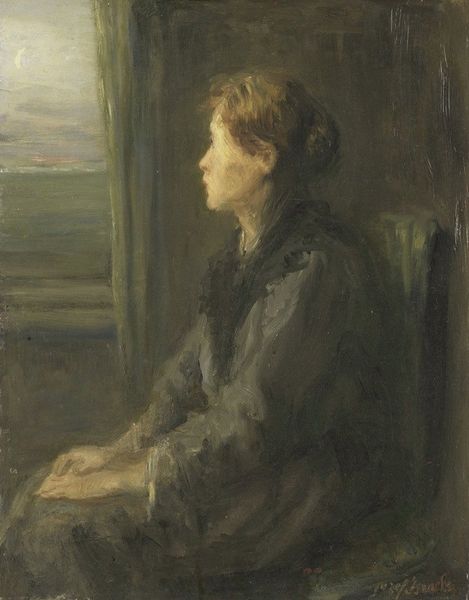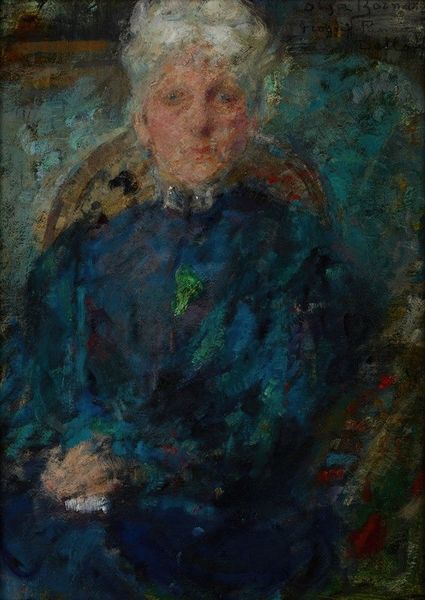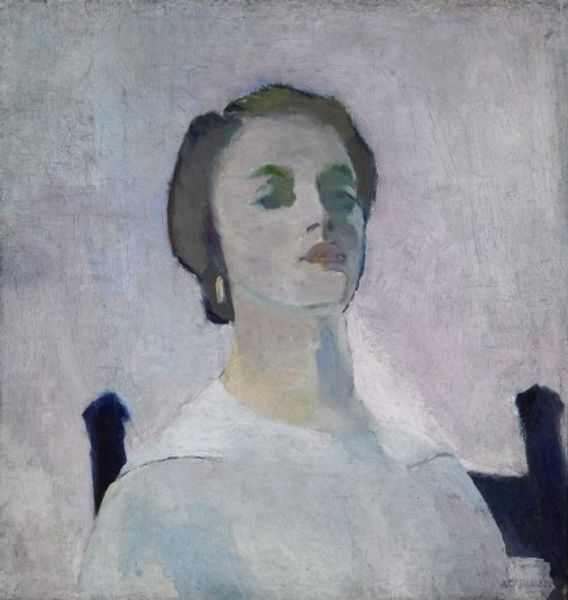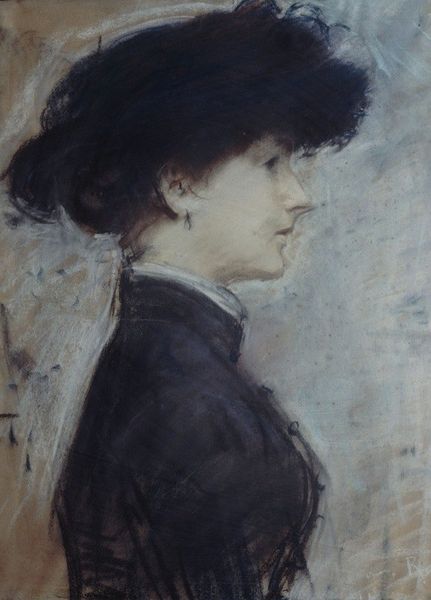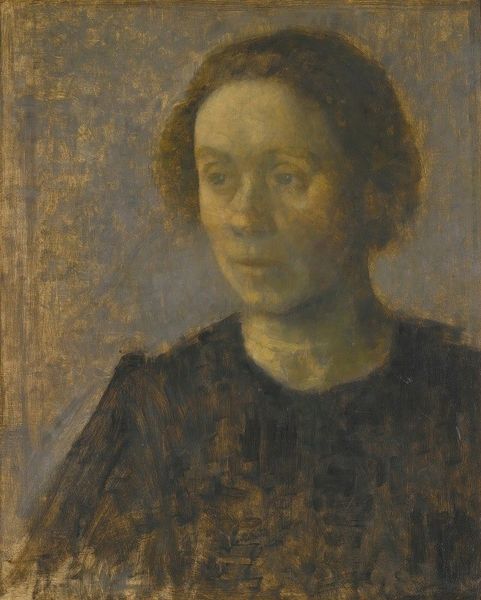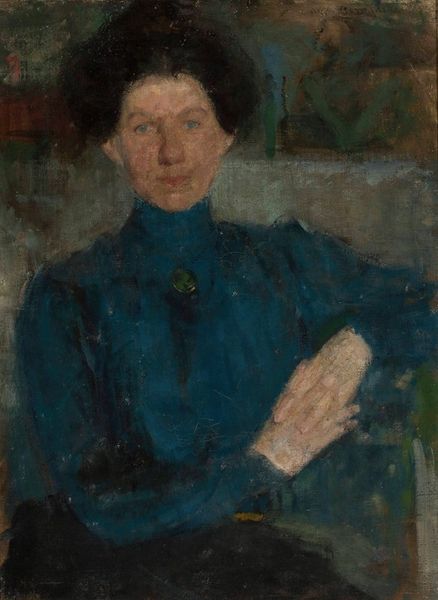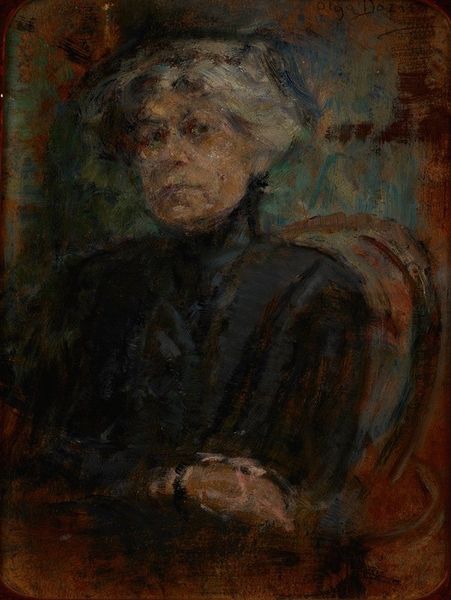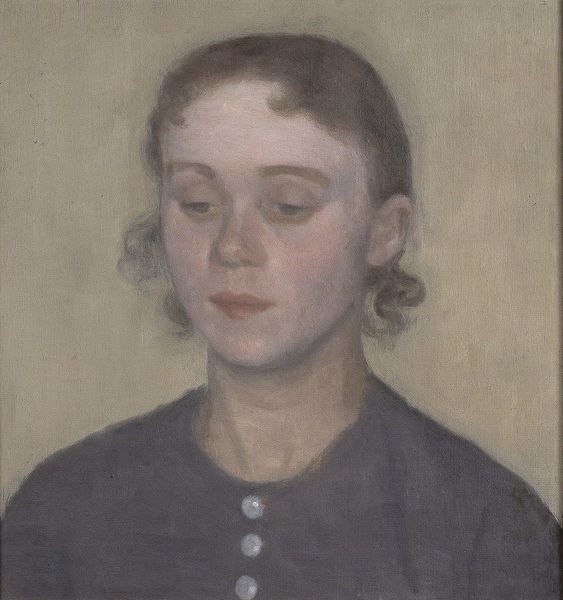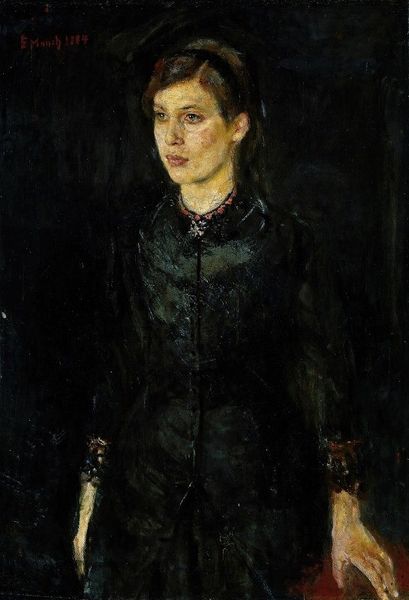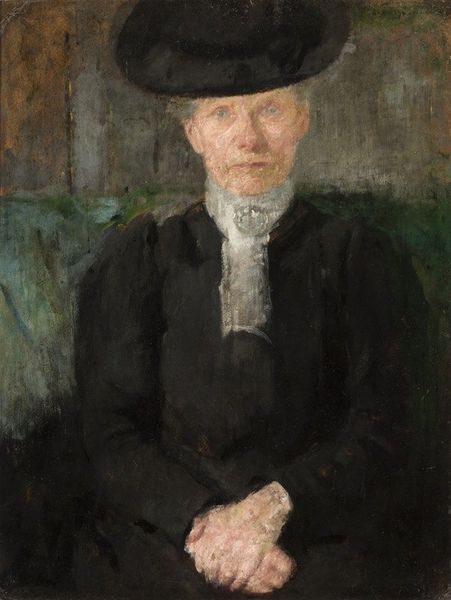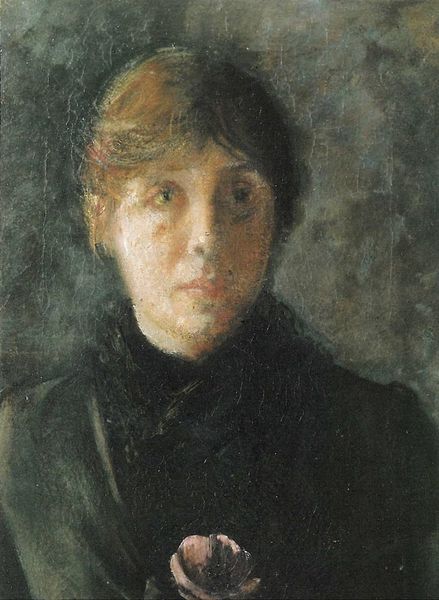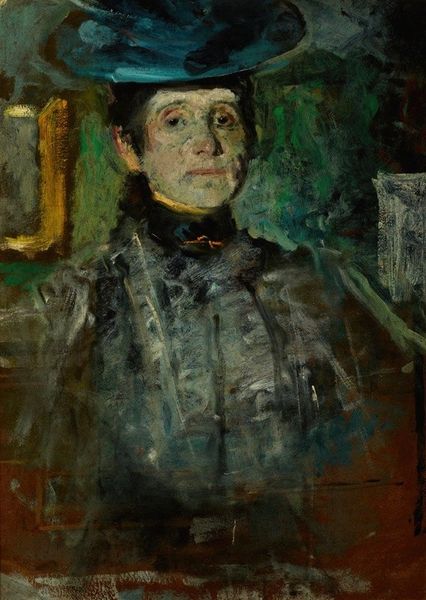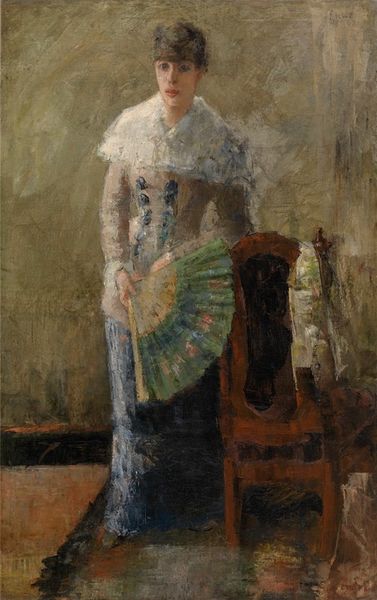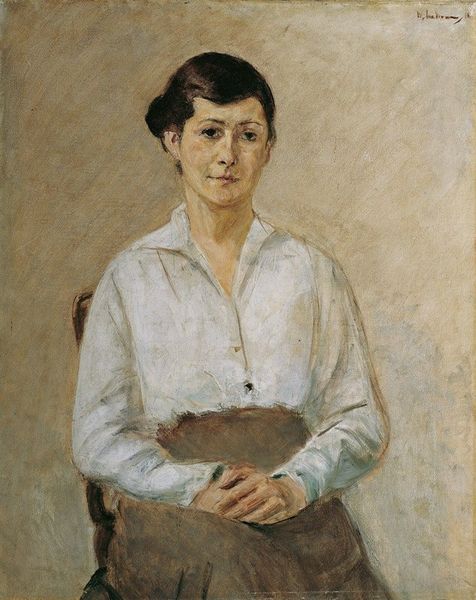
painting, oil-paint
#
portrait
#
figurative
#
painting
#
oil-paint
#
charcoal drawing
#
figuration
#
realism
Copyright: Public Domain: Artvee
Editor: We're looking at Vilhelm Hammershøi's "Portræt Af Ida," an oil painting. There's this striking quietness about it, almost muted in its palette and composition. What strikes you most about it? Curator: The painting's starkness invites questions about the social context of portraiture at the time. This was a period heavily influenced by academic painting. However, Hammershøi’s choices in the depiction of Ida, particularly the lack of overt display or narrative, stands out. Editor: Lack of narrative, how so? Curator: Consider traditional portraiture. Often, wealth, status, or specific achievements were conveyed. Here, what signifiers do you notice? Instead of the expected, we find a very withdrawn subject, an ordinary space. How might this reflect changing perceptions of women's roles or domesticity during that period? Editor: So it's less about individual accomplishment, and more about representing an interior life? That is a break from tradition. Curator: Precisely. And further, note the near-absence of color, emphasizing a certain psychological depth. This is happening within an art world exhibiting greater and greater interest in impressionistic colour and painterly freedom, setting Hammershoi against the fashionable current. How does this speak to ideas about artistic value, perhaps as more attached to interiority? Editor: I see what you mean, it pushes back against traditional academic portraiture and impressionistic colour. Thanks for pointing that out. It changes how I read the whole image. Curator: It makes you consider what wasn't included just as much as what was. And understanding those choices in light of art world history, you can understand a broader social history as well.
Comments
No comments
Be the first to comment and join the conversation on the ultimate creative platform.
